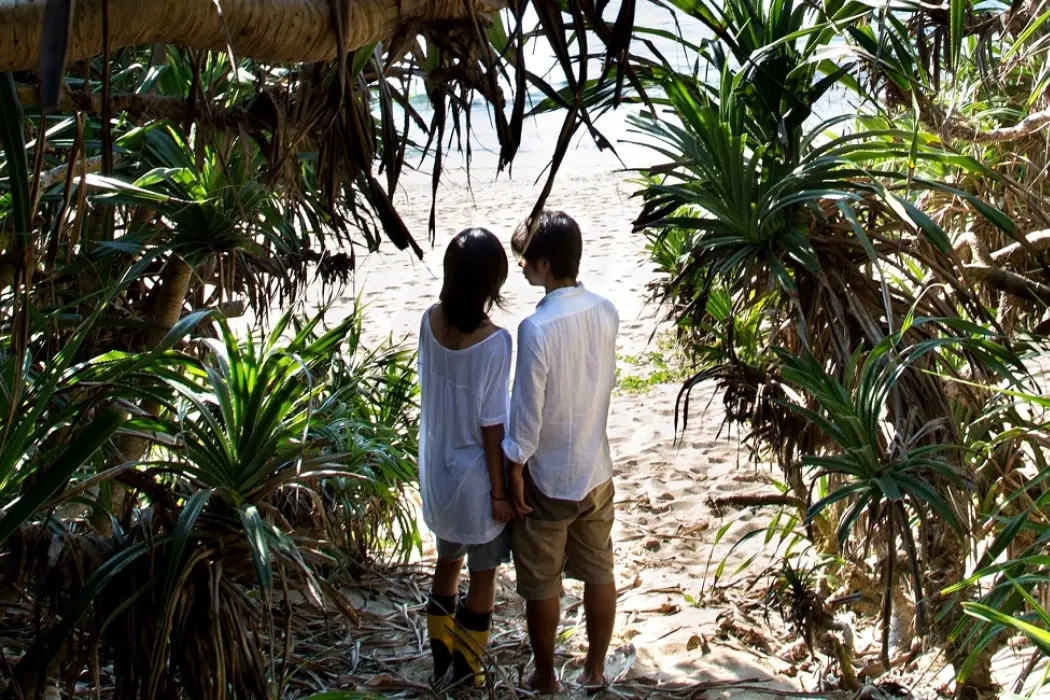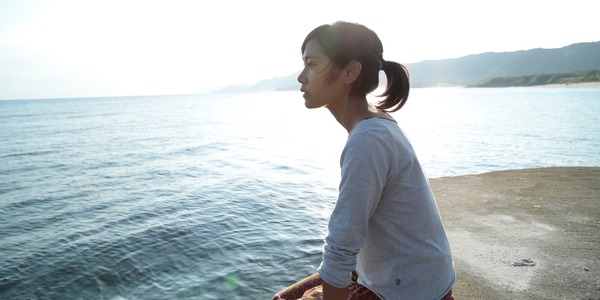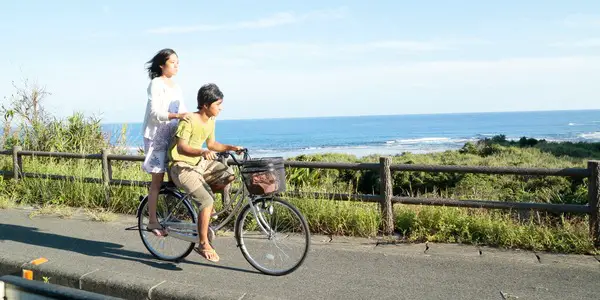STILL THE WATER: A Movie That Floats A Little Too Slowly

Soham Gadre is a writer/filmmaker in the Washington D.C. area.…
I generally avoid using the word “boring” to describe movies, especially when I’m writing a full review of them. It tends to be a catch-all term that avoids getting into the details of why a film fails to engage. There are a good number of reasons why Naomi Kawase’s Still the Water nearly put me to sleep and some of them are actually ones that I respect to a degree. Having gone to the Cannes Film Festival after winning two major prizes for her previous films, Kawase wasn’t shy about saying she was gunning for the big one – the Palme d’Or – this time. It’s perplexing because Still the Water is a film that is almost comatose in its composition.
Nature and Romance Sans Poetry
On the Japanese island of Amami, the film portrays an adolescent romance between Kaito (Nijirô Murakami) and Kyôko (Junko Abe) that circles around the traditions and lifestyle of the people of the island as well as a philosophical mystery revolving around a death that occurs on the coast. The muted portrayal of characters in the film tries to emulate the sort of festival-favorite style of some of Cannes’ most celebrated works. The understated emotions as well as the long sequences between dialogue try to leave communication as vague as possible. Cinema is of course a visual language and scenes of silence have evoked beautiful emotion in the films of some great filmmakers. But Kawase seems to use these moments as an obvious and shallow mark of manufactured artistry.

There is no doubt the island and its nature and inhabitants are beautiful. Stunning shots of the sea, a crab walking on a leaf, and scrumptious depictions of local cuisine (food photography is a true calling for Kawase) all make for mildly watchable sequences that speak to an authentic existence and flesh out with the world where the film takes place. However, we’re not exactly getting Malickian poetry of composition here, it’s more akin to a tourist video with some stilted dialogue by teenagers who are both speaking over their own intellectual level but at the same time being completely shallow. The teenagers are likable enough but their budding romance feels contrived, brought upon by random bursts of inelegant spontaneity instead of the natural formation of companionship.
Stillness and Suspension
Perhaps it’s the purpose, given the film’s title elicits feelings of stillness and suspension within the sea, that the formation of any moving plotline is the antithesis of what Kawase is getting at here. There is a tranquility that lines up with the existential questions being asked. Kyôko’s mother is sick and dying and there’s a large number of questions that she has regarding death. Kaito keeps having recurring dreams of the dead man he saw floating in the sea and he wants answers for the fragility of life and the inevitability of death.

But these questions, as elusive as they are, are not tackled or confronted in any meaningful manner in the film. It’s one thing for the movie to embody the innocence of teenagers but another to embody the superficiality of their thinking. Even films like Mira Nair‘s Salaam Bombay or Lynn Ramsey‘s Ratcatcher may be central to the experience of young adults but they go above and beyond their subject’s comprehension to include the greater world they inhabit.
Conclusion:
While Still the Water feels pleasant, its existential questions are frustratingly left untraversed by its subtlety. Elongated sequences of nature and meandering camerawork don’t resonate as poetic visual grammar but rather as simply time-sucking sequences aiming at a faux-profundity that the movie is too oblique to really pierce. It’s a bit of disappointment because the cultural elements of the film, its unique section of Japanese history that still preserves ancient traditions despite having fallen until total American military control following World War II, paint an intriguing portrait that could have drawn out a romance and contemplative story of love and death that stretched beyond the cliché borders that Kawase keeps this film in.
Still the Water was released in the United States on VOD on March 3, 2023
Watch Still the Water
Does content like this matter to you?
Become a Member and support film journalism. Unlock access to all of Film Inquiry`s great articles. Join a community of like-minded readers who are passionate about cinema - get access to our private members Network, give back to independent filmmakers, and more.
Soham Gadre is a writer/filmmaker in the Washington D.C. area. He has written for Hyperallergic, MUBI Notebook, Popula, Vague Visages, and Bustle among others. He also works full-time for an environmental non-profit and is a screener for the Environmental Film Festival. Outside of film, he is a Chicago Bulls fan and frequenter of gastropubs.













